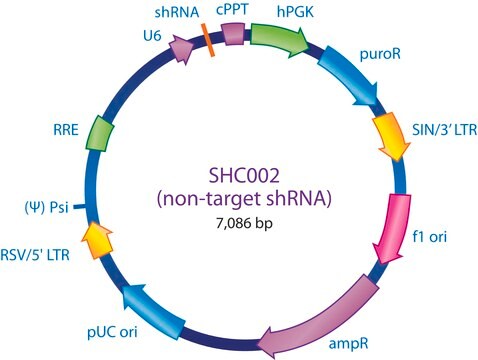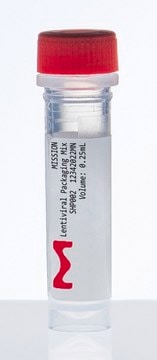SH0511
MISSION® shRNA Human Gene Family Set, Bacterial Glycerol Stock
Tumor Suppressors
About This Item
Productos recomendados
product line
MISSION®
storage temp.
−70°C
Gene Information
¿Está buscando productos similares? Visita Guía de comparación de productos
Categorías relacionadas
General description
Other Notes
Legal Information
Storage Class
10 - Combustible liquids
wgk_germany
WGK 3
flash_point_f
Not applicable
flash_point_c
Not applicable
Certificados de análisis (COA)
Busque Certificados de análisis (COA) introduciendo el número de lote del producto. Los números de lote se encuentran en la etiqueta del producto después de las palabras «Lot» o «Batch»
¿Ya tiene este producto?
Encuentre la documentación para los productos que ha comprado recientemente en la Biblioteca de documentos.
Artículos
We present an article about how proliferating cells require the biosynthesis of structural components for biomass production and for genomic replication.
Nuestro equipo de científicos tiene experiencia en todas las áreas de investigación: Ciencias de la vida, Ciencia de los materiales, Síntesis química, Cromatografía, Analítica y muchas otras.
Póngase en contacto con el Servicio técnico






